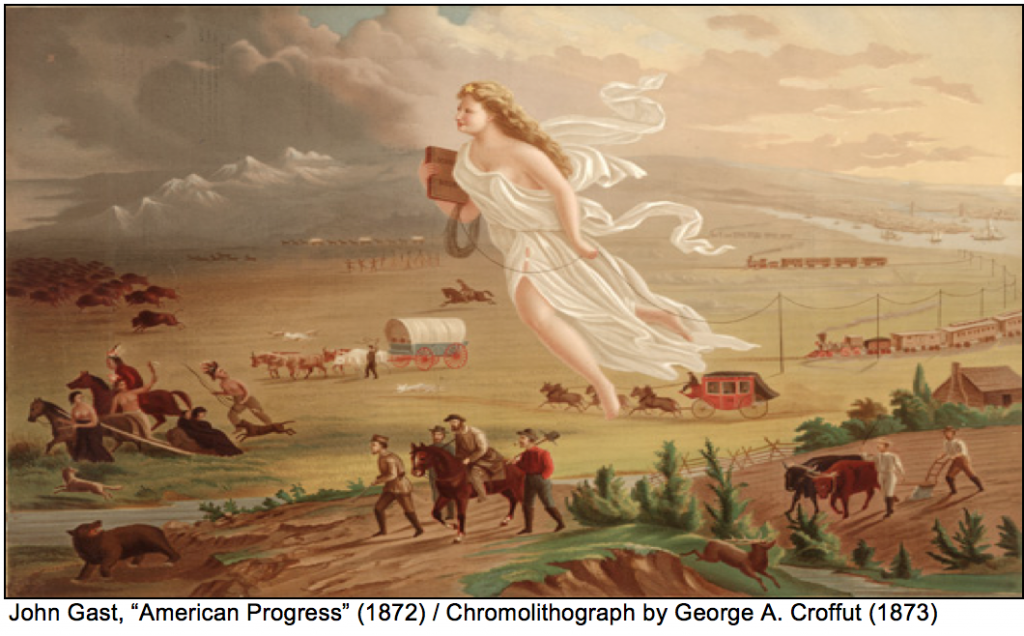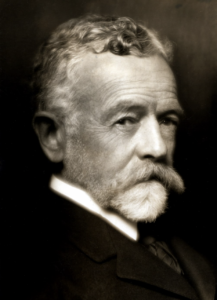National economies were bound so tightly together, [Norman Angell] maintained in his book, The Great Illusion, that war, far from profiting anyone, would ruin everyone. —Margaret Macmillan, “Rhyme of History,” Brookings (2013)
Causes of World War I
Imperialism
“Between 1870 and 1900, Britain added more than four million square miles to its imperial holdings, France more than three and a half million, and Germany one million. The new rush for empire further destabilized an already unsettled world.” –George Herring, From Colony to Superpower (2010), 268
- During this same period, the US added approximately 500,000 square miles of annexed territory (Guam, Hawaii, Philippines, Puerto Rico); including Alaska (1867) raises the figure above 1 million square miles
- The advocates for an American “large policy” in the 1890s were balance-of-power realists. What does that description from international studies mean in this context?
The New “Manifest Destiny”
Contemporaries celebrated American victories [in 1898] as the providential act of God. The influential Brooklyn minister Lyman Abbott, for instance, declared that Americans were “an elect people of God” and saw divine providence in Dewey’s victory at Manila. Some, such as Senator Albert J. Beveridge of Indiana, took matters one step further, seeing in American victory an opportunity for imperialism. In Beveridge’s view, America had a “mission to perform” and a “duty to discharge” around the world. What Beveridge envisioned was nothing less than an American empire. —American Yawp, Chapter 19, Sec. III
Woodrow Wilson’s Fourteen Points (January 1918)
- Open diplomacy, neutrality, and free trade
- Self-determination and de-colonization
- League of Nations and rule of international law
Wilsonianism offered a rebuke to balance-of-power realists by offering (in the terminology of international studies) a more idealistic approach to the US role in the world.
Treaty of Versailles Debate (1919-20)
-
Wilsonians (Robinson)
- Reservationists (Lodge)
- Irreconciliables (Borah, Johnson, LaFollette)
Timeline of votes:
- November 18, 1919: 8 to 55 for treaty with reservations
- November 19, 1919: 38 to 53 for Wilson’s treaty
- March 19, 1920: 49 to 35 for Wilson’s treaty // (56 required for 2/3 super-majority)
Discussion Questions
- Lodge and Wilson were both internationalists. So why did they destroy the greatest accomplishment of American internationalism to that point in time?
- Does this American treaty-making and treaty-ratifying system deserve any blame for this tragic outcome?
Consequences of World War I
We expect that the international community will deal with conflicts when they arise, and that they will be short-lived and easily containable. But this is not necessarily true. —Margaret Macmillan, “Rhyme of History,” Brookings (2013)
US Role in World Affairs
- WWI and Wilsonianism –lessons of imperialism and “guns of August”
- WWII and intervention –lessons of Munich and appeasement
- Cold War and containment –lessons of Vietnam and hubris






Leave a Reply